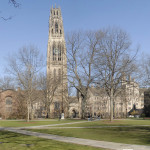My first name is Karléh – the Ghanian word for “lovely”. My middle name is Ashanta, which is an extension of the Swahili word for life, “Asha”. In some Southeast Native American tribes, Ashanta means Princess. And for the Ashanti tribe in Ghana, having the name Ashanta denotes royal blood. So, my name can be interpreted as meaning “Lovely Life” or “Lovely Princess”. Either way, my name has always meant more to me than just an arrangement of letters on a birth certificate.
My mother is a Creek Indian, and family names are an important part of her culture. She wanted to recreate a Creek naming ceremony used to name Native children. However, because one of the elders in my family is Nigerian and speaks many languages from the African continent, he was the one he picked the names. So while my names are Ghanaian, the way that I received my name represents my mother’s Native American culture.
People often mispronounced my name as Karlee Wilson. It did not even occur to me that people were mispronouncing my name, I just assumed that they weren’t talking to me.
As a young girl, I never had a problem correcting people when they mispronounced my name. By default, I was able to relate to the kids in my class whose names were Marissa Sanchez, Abel Gonzales, Joceline Silva, Giovanna Leyva, etc. I recognized these kids pronounced their names differently from the way the teachers did. So I made it a point to repeat their names to them in the Spanish accent that I heard them say them in.
When I moved to California, some of my new classmates asked me if it would be alright if they just called me “Karlee” since it was easier for them. I was dumbfounded by the question, as I’d never received it in Louisiana. I had always just assumed that white people lacked an ability to pronounce words that were not English. But in California, I quickly learned that this proposal to go by Karlee was essentially an invitation to participate in whiteness with them.
There were no Mexican immigrants at my new school in California, but there were Asian Americans. I was surprised to learn that these Asian Americans had Anglicized names to use at school, but usually went by names from their respective Asian countries when at home. I asked them what their real names were in an effort to stand in solidarity with them. I was appalled at their unwillingness to teach me how to say their names. I eventually realized that I was actually offending them because they didn’t want their names mispronounced by their American peers.
Still, using Anglicized names allowed Asian American students to more easily connect with their white peers – even though it was still on white peoples’ terms.
The strategic use of identification by many people of color allows them to enter into white spaces while evading unnecessary hostility. But our names are our treasure, and they hold more meaning to us than an identifying marker. For people of color whose names are phonetically mispronounced by American English standards, our names are acts of resistance against microaggressions that stifle our cultural creativity.
Today, I wear my name proudly. My Facebook account features the accent mark on the E so that people know that my name is not simply a stylized version of Karlee. I am thankful for my teachers and friends who pronounce my name correctly the first time, for they are complimenting me more than they realize. To say my name correctly is to stand in solidarity with my cultural heritage.
by Karléh Wilson



Names carry power. Keep holding onto your own.